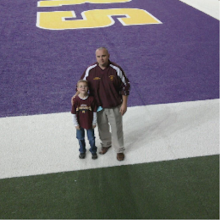It’s not about being right; it’s about doing the right thing. (Douglas Wheeler)
About Me
Saturday, November 12, 2011
Rick Wormeli: Redos, Retakes, and Do-Overs
Pretty interesting video clip regarding current grading practices (8 Minutes):
Wednesday, November 2, 2011
Having Fun with Learning
It has been said in a variety of ways that “Families are a child’s first and most influential teacher.” Our children learn important skills and knowledge both at school and at home. How can we partner with schools so children can achieve their goals, develop to their potential and participate fully in their community?
Family routines and special events provide a rich backdrop for important and meaningful learning. Children need many meaningful experiences to develop background knowledge. Through “hands on, minds on” experiences we develop important knowledge about how the world works. We continue to develop background knowledge throughout our lives. We know children who have had rich experiences have an easier time learning to read, developing math skills and understanding science concepts. Making learning a part of your family routine can help your child develop important background knowledge for life-long learning.
Family routines that support learning include:
• Conversations
Talking with your child may be one of the most important things you can do to support learning. Giving your child many opportunities to talk with you will develop vocabulary, social skills and reflective thinking. Talk with your child about things he or she is interested in (e.g, make comments about your child’s interests and ask open-ended questions to find out what your child is thinking.) Follow your child’s lead. Listen carefully for opportunities to start conversations: sports, friends, food, a special TV program may all offer a starting point for conversation. Have fun! We all learn best when we are engaged in activities that we enjoy.
• Meal preparation
In addition to conversations during family meals, cooking together can provide valuable learning experiences. Children practice literacy skills when they read recipes, information on food packages and learn new ingredient vocabulary. They learn math skills while measuring and selecting appropriate cooking utensils. They learn science when observing the changes that occur during the cooking process. All this while having great fun!
• Leisure time
We all enjoy our leisure time. This is a special time families can spend with their children. Surround your child with books and magazines. Read with and to your child. Select reading material together. Younger children may be interested for shorter periods of time. If your child sees that you value and have fun reading, they will too! All children have creative tendencies. What activities do you have at home that allow for creative learning? Buttons, fabric, construction paper, wrapping paper and ribbon can provide for crafts that allow for creativity. It is not the product that is important, but the process. Children learn problem solving, hand-eye coordination, and perseverance during the creative process. An inexpensive digital camera can provide endless hours of experimentation and creativity for older children. Your child will enjoy these activities even more, if he or she has the opportunity to experience them with a family member. Families can use the time they have with their children having fun exploring their world while, at the same time, supporting learning. This valuable time together will help ensure our children will develop the critical social-emotional, physical, language and thinking skills necessary to be an active participant in their community.
~ Alison Bell
Iowa Statewide Parent Information Resource Center (PIRC)
Subscribe to:
Comments (Atom)
